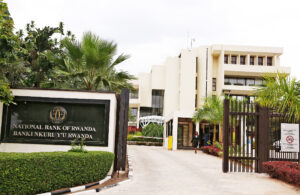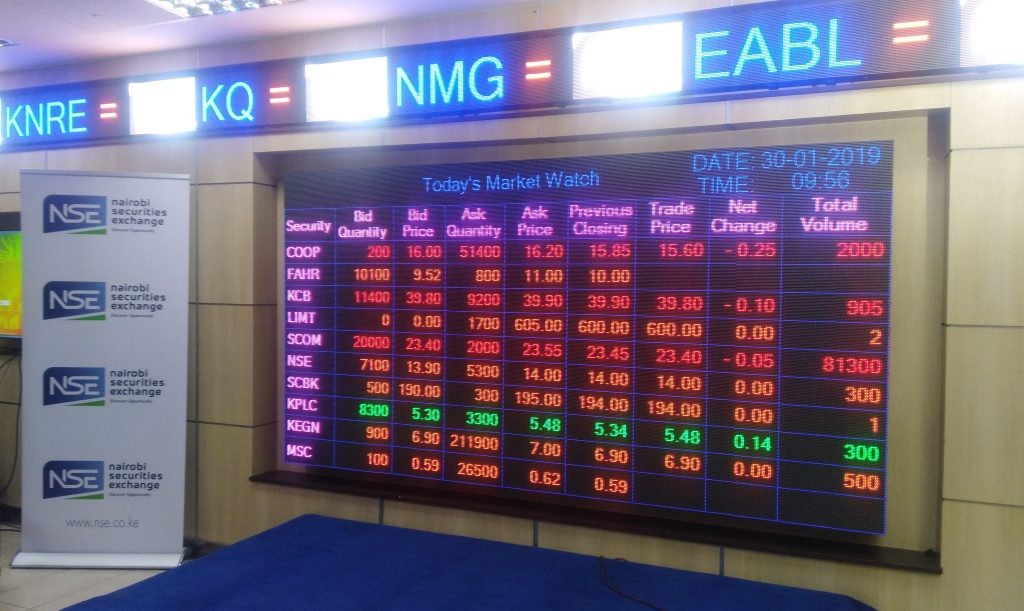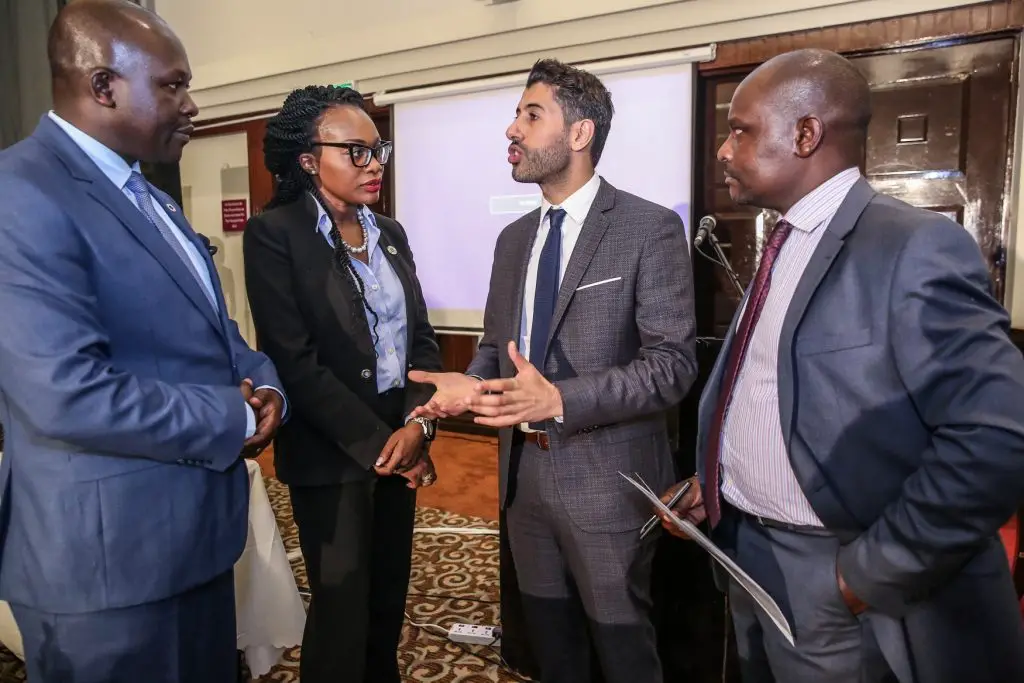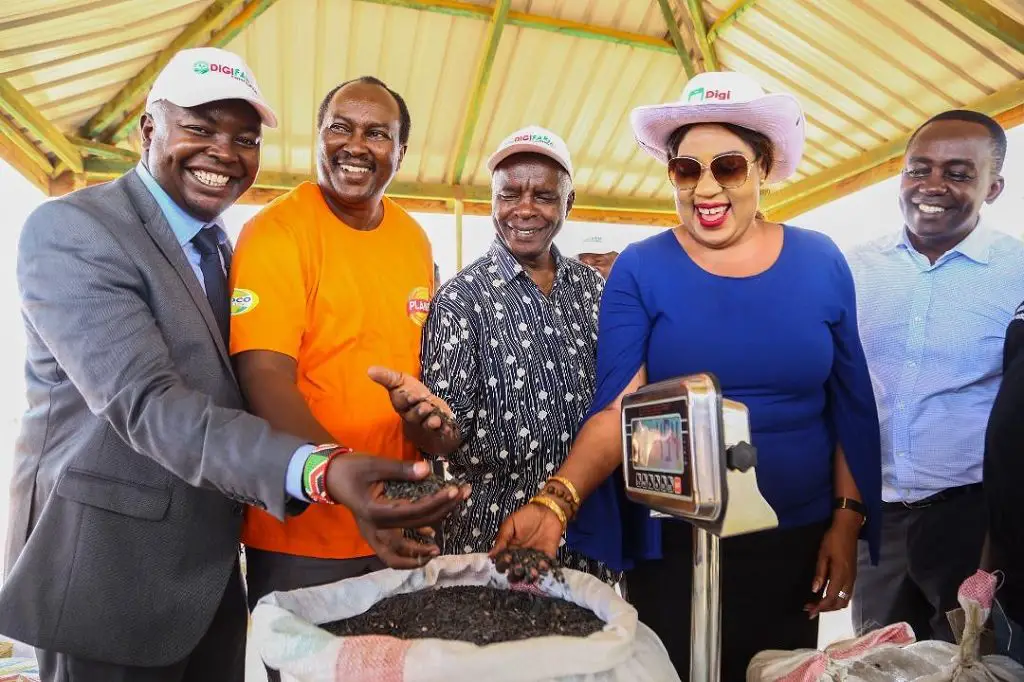- TikTok Community Guidelines update aims to curb hate speech and misinformation
- Rwanda sees 39% surge in bank borrowers as Sacco and MFI loan uptake declines
- Kenya Ports Authority wins dispute case over cargo release
- Why Africa can reap billions from digital economy
- Africa private capital deals drop 28 per cent amid global economic turmoil
- Saudi Islamic Development Bank to the rescue of Uganda with $295 million loan
- Reshaping the future of sustainable food systems in Africa
- African Heads of State call for tripling of World Bank’s concessional financing
Month: July 2019
The Kenyan government has set up a multi-sectoral working committee to coordinate enforcement of various regulations affecting food safety in the country.
This follows recent trends of illegal activities in the food sector such as adulteration, poor hygiene, improper handling and misuse of chemicals.
The committee brings together ministries related to food production, safety, trade and enforcement of regulations.
These are the Ministry of Agriculture, Livestock, Fisheries and Irrigation, Ministry of Health, the Ministry of Industry, Trade and Cooperatives and the Ministry of Interior and Coordination of National Government.
Speaking after the inaugural meeting, Livestock PS Harry Kimutai said the government has committed itself to support the production of safe food to ensure the growth of a healthy and secure nation.
“The various government agencies represented here are directly involved in ensuring food safety and would like to assure consumers that food in the markets, including meat products, is safe …
Tullow Oil PLC (TLW.LN) recorded a strong performance in the first half of 2019 reporting a 91.5 per cent jump in profit, as it continued with its investments in Africa’s oil space.
Profit after tax for the period ended June 30, closed at US$103.2 million up from US$53.9 million in a corresponding period last year.
This is despite a drop in sales revenue which closed the period under review at US$872.3 million; compared with US$905.1 million it recorded a year-earlier.
Operating profit however went up to US$388 million compared to US$300 million in H1 of 2018 with the British oil firm reducing its net debt to US$2.9 billion from US$3.1 billion in June last year.
“Tullow has delivered a good set of financial results in the first half of 2019, with further reductions in net debt and gearing underpinned by strong cash flow generation from our assets despite the lower …
Kenya’s capital markets performed dismally in the second quarter of the year, latest data shows, despite political stability and growing interest from foreign-based investors.
The Capital Markets Authority (CMA) report for the quarter ended June 2019 shows secondary equities market registered slow activity during the review period.
Equity turnover for Q2.2019 stood at Ksh32.89 billion (US$316.3million), compared to Ksh45.25 billion(US$435.1million ) registered in the previous quarter; a 27.31 per cent decrease.
Similarly, market capitalization recorded a 3.46 per cent decrease to Ksh2.278 trillion (US$21.9billion) from Ksh2.360 trillion(US$22.7billion)in Q1. 2019.
READ ALSO:NSE dips as 2018 ends on a bear market territory
Traded volumes followed the same trend, falling by 3.46 per cent to 1.39 billion during the period under review.
Other composite indicators such as the NSE All Share and NSE 20 Shares indices likewise recorded decreases of 5.11 per cent and 7.51 per cent closing the quarter at 149.61 …
The Central Bank of Kenya (CBK) has retained its benchmark lending rate at 9.0 per cent for the sixth straight time since bringing it down in July 30 2018, sparing borrowers higher cost of loans.
The Monetary Policy Committee (MPC) which is CBK’s top decision making organ met on Wednesday to review the country’s macroeconomics.
Chaired by CBK governor Patrick Njoroge, the committee held retained the rates where there have been for almost a year, even as the capping of interest rates continues to affect lending trends by banks.
President Uhuru Kenyatta signed into law a Bill capping bank interest rates at 4 per cent above the Central Bank Benchmark Rate, in August 2016.
With the bench mark rate at 9.0 per cent, banks can only charge interest of up to 13 per cent.
READ ALSO:Why banks in Kenya will lend at a maximum 13%
Why retain
Among the …
PepsiCo, has announced that it has entered into an agreement to acquire all the outstanding shares of South African based company, Pioneer Foods Group Ltd. for R110.00 per share in cash (approximately US $1.7 billion).
This represents a 56% premium to the 30-day volume-weighted average price prior to the cautionary announcement on July 15, 2019.
Pioneer Foods has a robust, locally relevant product portfolio that complements PepsiCo’s current lineup, with strong positions in cereals, juices, and other African nutritional food staples, including well-known, scaled brands like Weet-Bix, Liqui-Fruit, Ceres, Sasko, Safari, Spekko, and White Star.
Pioneer Foods is one of the largest South African producers and distributors of a range of branded food and beverage products and posted revenue of R20.2 billion in 2018. The Group operates mainly across South Africa and exports to more than 80 countries across the globe inclusive of a number of countries in
Masisi’s visit to Kenya has an agenda to have the East African nation reconsider its stance on “the utilisation of natural resources”.…
Kenya’s Pharmacy and Poisons Board (PPB) has approved the use of a prescription drug manufactured by Janssen, one of the pharmaceutical companies of Johnson & Johnson, for the treatment of prostate cancer.
The local pharmaceuticals regulator has approved the use of Janssen’s once-daily medication ZYTIGA® (abiraterone acetate) for the treatment of metastatic castration-resistant prostate cancer ahead of a chemotherapy regime.
The approval is expected to help boost ongoing efforts to minimise existing barriers to cancer care access in Kenya.
READ ALSO:Kenya: Prostate cancer patients to get cheaper drugs
The prescription only innovator (non generic) oncological management drug is distributed locally by Janssen Kenya as part of the global pharmaceutical firm’s commitment to enhance access of essential drugs.
Speaking, when he confirmed the recent approval, Janssen Kenya Country Manager Marseille Onyango said prior to the approval, ZYTIGA had only been licensed for treatment of advanced prostate cancer cases post chemotherapy.…
Kenya’s Insurance sector is set to face disruption following the launch of a new InsurTech ecosystem seeking to create new solutions to the ailing insurance sector.
READ:Why Kenya’s insurance sector is “rotten”
Over 60 InsurTech start-ups pitched to investors at the inaugural two day Africa 3.0 conference held in Nairobi, as they seek to partner in increasing insurance penetration in the region.
The Conference which was organised Market Minds in partnership with Evolution East Africa and the UK Department for International Trade also saw over 150 start-ups from Africa participate.
Market Minds Founder, Sebastian De Zulueta, says a number of deals are expected to be signed with over 30 venture capitalists keen to tap into the opportunities in the insurance market in Kenya and Africa at large.
READ ALSO:Sanlam Kenya reveals secret weapon for 2019
“East Africa’s mobile penetration gives great opportunities for disruptions in the insurance sector. …
In the next five years, Safaricom’s mobile agriculture platform DigiFarm will outgrow M-Pesa at least according to the company’s outlook.
DigiFarm which currently has more than 200,000 farmers using the service daily was launched in partnership with Farmdrive, iProcure and Arifu.
The platform which aims at digitising entire agriculture value chains in Kenya has 7,000 farmers successfully taking loans using the app.
This money is usually spent on purchasing seeds, fertilizers and pesticides.
The M-Pesa Ecosystem
Safaricom Chief Financial Services Officer, Sitoyo Lopokoiyit, says that DigiFarm has grown phenomenally since its launch in October 2017.
So far, the platform has over 1 million farmers registered.
“In line with our Purpose of Transforming lives, we have provided a mobile technology platform for the smallholding farmers to access a suite of information and financial services, said Lopokoiyit.
Within DigiFarm, farmers can access credit and other financial facilities.
These farmers can also share …
Juba – South Sudan has launched its first-ever mobile money transfer service in Juba last week. The aim of m-GURUSH (m-for mobile and GURUSH for money in Arabic) is to make it easier to transfer money, as well as create new job opportunities in South Sudan.
The mobile based financial service platform is a joint partnership between South Sudan’s Trinity Technologies Limited and Zain Telecoms South Sudan.
Licenced by the Bank of South Sudan and the National Communications Authority of South Sudan, m-GURUSH allows users without bank accounts to access banking services through outlets spread across the country.
The virtual banking system allows users to access services through a Zain Network SIM card that is compatible with all of South Sudan’s mobile networks. Once activated, the SIM will allow users to transfer money to family or make payments to vendors. The service is also available on UUSD or as a …













